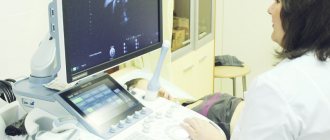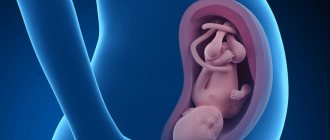Rating: No rating
The nutrition of a pregnant woman has a huge impact on the developing fetus. The baby's health directly depends on the mother's diet. If her body does not receive some vital vitamins and microelements, the child may experience many disturbances in the functioning of certain organs or systems. That is why a pregnant woman needs to pay great attention to her diet, especially in the first months of bearing a child. After all, right now the laying of organs is taking place and the prerequisites for the health of the unborn baby are being created.
What happens in the first trimester of pregnancy
In the 1st trimester, the embryo begins to acquire the features of the unborn child. At the end of the first month of pregnancy, you can hear his little heart beating , his eyes, spine, intestines, circulatory and nervous systems begin to form.
The brain begins to emerge, after which the embryo can be considered a fetus.
The first trimester is of particular importance throughout the entire pregnancy cycle , so it is extremely important that during these months the fetus receives all the necessary substances for full, normal development. The expectant mother should be very careful when choosing food in the early stages of pregnancy.
The first trimester of pregnancy - what is possible and what is not, should you take vitamin supplements?
It is important to consider in the first trimester of pregnancy what you can and cannot take. So, first of all, it is worth remembering that everything should be in moderation.
Thus, before you start taking complexes, it is worth remembering that beneficial microelements enter a woman’s body not only with pills, but also with food. An excess of useful elements is no less dangerous than a deficiency, as it can lead to early aging of the placenta and the development of unpleasant consequences.
To determine whether you need to take additional medications, you should consult a doctor. Only a specialist can determine the specific dosage of the medicine and find out which elements in the body are not enough.
It is not recommended to start taking medications without prior consultation, because an overdose can negatively affect both the condition of the mother and the condition of the fetus.
After passing all the necessary tests, the doctor will be able to accurately determine the individual needs of the pregnant woman’s body and prescribe the necessary medications.
Features of the diet of a pregnant woman
In the 1st trimester, the pregnant woman’s lifestyle and diet for pregnant women are not very different from what the woman had before pregnancy. The most important condition during this period is a varied diet . Every day, the expectant mother should eat different foods containing the maximum range of microelements, nutrients and vitamins: more fresh fruits, berries and vegetables, seafood, herbs, dairy products, seeds and nuts.
In the first 3 months, the caloric content of food must be increased by no more than 150 kcal and it should be about 2500 kcal per day. Of these, 55% should come from carbohydrates, 30% from fats and 15% from proteins.
Squirrels
Protein is extremely important for the fetus to fully develop, the placenta and uterus to grow, the amount of circulating blood to increase, and the level of amniotic fluid to be maintained at normal levels. Already in the first weeks of bearing a child, the need for proteins increases sharply .
calculate the required amount of protein as follows: for 1 kg of a woman’s weight, 1.5 g of protein per day is required (on average, this is 50-85 g), while half of the protein should be of plant origin, and half should be of animal origin (about 30% should be taken from fish and meat dishes, 15% from dairy products and 5% from eggs). If there is a lack of protein during this period, the child’s likelihood of developing obesity, diabetes and hypertension increases.
Fats
Thanks to fats, the correct formation of the brain, visual function, and intelligence of the baby is ensured. Most fats must be obtained from vegetable oils . Consumption of animal fats, especially pork, lamb or beef, should be reduced to a minimum amount.
per day , a third of which is best obtained from butter.
Carbohydrates
They are the main source of energy . Regular consumption of carbohydrates can help normalize bowel function, eliminating common problems such as flatulence and constipation.
A pregnant woman needs 500 g of carbohydrates per day If you have problems with excess weight, this amount should be reduced by one and a half times. You need to get carbohydrates from oatmeal, buckwheat or rice cereals, as well as fruits and vegetables and a small amount of bread (no more than 150 g per day).
Liquid
In the first months, you can drink as much fluid as your body requires. The volume of liquid consumed should be 1.5-2 liters per day , and this also includes liquid foods (porridge, soups) and juicy vegetables and fruits.
It is best to drink mineral water. Among other drinks, the best option would be compotes from dried or fresh fruits, fruit drinks, and juices.
It is strictly not recommended to buy packaged juices in stores - they contain a lot of all kinds of chemical additives and preservatives, no matter what the advertising says. It is best to prepare them yourself, for which you will need to get a good juicer.
Checklist for the 1st trimester of pregnancy
- Get your first pregnancy screening before the end of the first trimester.
- Visit your gynecologist regularly, and before each visit, do not forget to take a general urine test.
- Don't forget about physical activity: it reduces the risk of pregnancy complications and prepares the body for childbirth.
- Before the cold season, be sure to get a flu shot; it is safe for both you and the fetus.
- Eat a healthy diet, stop smoking, and limit your caffeine intake to 200 mg per day.
- Check out our pregnancy calendar to know what you need to be prepared for at different stages of pregnancy.
Entrust your pregnancy management to the specialists of the Medical Women's Center. All tests, screenings, studies and consultations with specialists at a time convenient for you under one roof. We create individual observation programs and have successful experience in supporting complicated pregnancies.
Early pregnancy nutrition tips
Proper nutrition for pregnant women in the first trimester requires compliance with the following rules:
- Every day you need to eat 150 g of fish or meat, 50 g of low-fat cottage cheese, 150 g of bread, 500 g of vegetables and the same amount of fresh berries and fruits; You can consume no more than two glasses of kefir or milk;
- You should only eat food freshly prepared at home;
- Meat and potatoes should not be consumed together with flour products;
- for better digestion of food, you need to chew it longer in your mouth;
- do not season salads with mayonnaise, use only vegetable oil for this purpose;
- you should eat in small portions;
- calorie intake throughout the day must be distributed as follows: breakfast should contain 30%, second breakfast - about 10%, lunch - 35-40%, afternoon snack - about 5%, dinner - no more than 10%;
- if you want to have a snack between these meals, it is recommended to drink yogurt or eat fruit;
- you must have lunch no later than two o’clock in the afternoon;
- do not eat food later than 7 pm; if you are very hungry, you are allowed to drink yogurt or kefir, or eat a few spoons of cottage cheese;
- in summer you need to eat more fruits than vegetables, in winter - vice versa;
- eat foreign vegetables and fruits as little as possible, as they can cause allergies;
- you can eat nuts and seeds every day;
- flour products contained in the diet must be made from wholemeal flour.
The second dangerous moment of the first trimester
Having successfully experienced the initial days of conception, you need to be prepared for the second difficult moment from 8 to 12 weeks (end of the first trimester). At this time, a very interesting and important process occurs in a woman’s uterus - the placenta begins to form. In the future, it will protect the baby from all kinds of infections, provide him with the necessary nutrition and oxygen.
Its gradual growth begins at 2-3 weeks, but it is during this period (from 8 to 12-13 weeks) that placental cells are especially active. Hormones begin to “jump” in the blood, the state of health may change, and a serious transformation occurs in the body. It is during this period that the largest number of miscarriages occur.
Factors that have a particularly negative impact on pregnancy in the first trimester:
- Bad habits.
- Excessive physical activity.
- Frequent stress.
- Taking certain medications.
- Past viral or bacterial infections.
- Unresolved inflammatory processes in the body.
But, dear expectant mothers, when reading this material, under no circumstances should you expose yourself to anxiety and create non-existent problems. There are millions of women in the world who conceived children completely unplanned, unaware of their situation for the first month and leading a lifestyle that is dangerous for pregnancy. This did not stop them from quietly bearing and giving birth to healthy babies. The most important thing is a positive attitude and calm nerves!
Below are recommendations that women in their first trimester should follow to avoid threats:
- Register with the antenatal clinic, follow the doctor’s recommendations and prescriptions.
- Protect yourself from psycho-emotional stress, be less nervous, avoid stress.
- Reduce physical activity. Walking and light house cleaning are acceptable. Do not lift heavy objects under any circumstances.
- Provide yourself with adequate nutrition, but do not overeat.
- Spend more time in the fresh air and relax.
- Surround yourself with positivity (watch only good films, read good literature, be more happy, smile).
We honor:
A selection of the most interesting “pregnant” films and TV series
What vitamins and microelements should you pay attention to?
At the beginning of its development, the embryo reacts sharply to changes in the amount of incoming minerals and vitamins. In order for pregnancy to proceed normally and the fetus to fully develop, it is necessary to ensure that the body receives a sufficient amount of vitamins.
If a woman follows a varied and balanced diet, there is no need to compensate for the vitamin deficiency with any medications.
So, what vitamins and microelements are required for a pregnant woman in the 1st trimester:
- Folic acid. With its deficiency, disturbances form in the child’s nervous system. Folic acid requires about 500 mcg per day. There is a lot of it in spinach, citrus fruits, broccoli, green peppers. Its deficiency of this vitamin leads to defects in the development of the heart, visual and respiratory organs. But an excess of this vitamin can negatively affect the health of the mother and child. Therefore, if you take any medications with this vitamin, then only those aimed at pregnant women, where its dose will not exceed 1400 mcg.
- Vitamin E. Particularly important in the first 2 weeks of pregnancy. It is this vitamin that normalizes the functioning of the placenta, ensures normal blood circulation of the fetus, eliminates problems with hormonal levels, and helps fight the harmful effects of the environment. This vitamin requires at least 150 mcg per day.
- Iodine . Iodine deficiency can lead to disturbances in the development of the nervous system, brain, reproductive and skeletal systems. In more severe cases, iodine deficiency can cause miscarriage. That is why doctors often prescribe iodine-containing medications to pregnant women, as well as eating large amounts of walnuts and seafood, where it is found in excess.
- Iron . If there is a lack of iron in the body, premature birth may occur, or the child may develop anemia in the future. You need to consume about 20 mg of iron per day. This element is abundant in legumes, pumpkin seeds, pork liver, Jerusalem artichoke, rye bread and lentils.
- Phosphorus and calcium . Phosphorus is required 2 g per day, calcium - half as much. Calcium is found in abundance in egg yolks, cheese and milk, phosphorus – in fish. A liter of milk per day will be enough to meet the body's needs for both of these elements.
It must be taken into account that long-term storage of fruits and vegetables, as well as their heat treatment, significantly reduces the amount of vitamins they contain.
Do's and don'ts
Fortunately, it is quite difficult to harm a healthy pregnancy, and most common prohibitions are simply myths and prejudices, such as the belief that a pregnant woman should not cut her hair or knit.
Among the unconditional prohibitions of the first trimester of pregnancy are lifting weights, smoking and alcohol, heat stress, and hazardous sports.
Is it possible to have sex?
If there are no contraindications, then intimate intimacy at any stage of pregnancy will not harm the fetus. It is reliably protected by amniotic fluid and the walls of the uterus. Therefore, decide this issue based on your own desires, and if you have any disorders, for example, vaginal bleeding, be sure to consult a gynecologist.
Can I take medications?
The effect of many drugs, especially in the first trimester, has been poorly studied in pregnant women. Therefore, it is better to consult a specialist. Sometimes you simply cannot do without medication, as, for example, with a high temperature. Prolonged fever is dangerous for the fetus, so it must be stopped. If you have a chronic disease that will lead to serious deterioration without treatment, you should choose the safe ones together with your doctor.
What you can't eat
Some foods and drinks are strictly prohibited during the 1st trimester:
- Alcohol . Regardless of its quantity, it can cause severe damage to the developing fetus.
- Caffeine. It is not recommended to drink coffee, as well as drinks that contain caffeine - tea, energy drinks, cola. Caffeine disrupts the baby's heart function and interferes with the normal development of the respiratory system. If you drink coffee frequently in the 1st trimester, there is a high risk of giving birth to a premature baby. You are allowed to drink a small cup of coffee in the morning and be sure to add milk to it.
- Vitamin A . An excess of this vitamin is just as dangerous as its deficiency. It is not recommended to eat a lot of foods high in it.
- Medicines . Any medications should only be taken with the approval of a doctor, and then only if you cannot do without them. In the 1st trimester, it is recommended to completely eliminate any medications, replacing them with harmless folk remedies.
- At the beginning of pregnancy, it is advisable to avoid fast food, sweets, smoked foods, canned foods and fried foods, as well as any foods that contain a lot of preservatives and other harmful chemicals.
Proper nutrition for pregnant women: the benefits are not in quantity, but in quality
While pregnant, a woman begins to want to eat more. But increased appetite still should not be accompanied by gluttony, since in fact the body requires not just more food, but more HEALTHY food. Therefore, nutrition must, first of all, include all the necessary substances.
If you evaluate the body’s requirements incorrectly and begin to eat up your hunger with fast food, semi-finished products and other “delicacies” of the so-called fast cuisine, then, while still in the womb, the child will begin to experience serious health problems that will immediately manifest themselves at birth. What mother wants to endlessly treat her baby and watch him suffer? Therefore, immediately forget about harmful foods, alcohol, smoking and fill your refrigerator with fruits, vegetables and healthy homemade food. By the way, even if you have delicious pickles and smoked meats at home, even if they are homemade, you should also forget about them, as they have a detrimental effect on the body and overall well-being.
If the expectant mother does not monitor her diet, then, first of all, she will not allow her child to develop normally and will harm her own body. Such carelessness can easily result in anemia, weight loss and decreased immunity. This is why many women begin to feel constantly tired at the very beginning of pregnancy, because they lack calories, protein and iron.
Nutrition for toxicosis
You can alleviate the condition of toxicosis by following these nutritional recommendations in the first months of pregnancy:
- you need to eat in small portions;
- do not eat fatty foods, sweets and baked goods;
- do not eat anything that causes nausea;
- food should not be too hot;
- do not make sudden movements;
- drink more, especially if there are frequent bouts of vomiting;
- include more foods rich in vitamins C and B into your diet.
Dried apricots, mint infusion, sauerkraut, ginger, lemon, infusion of calendula or dill seeds help to cope well
Ectopic pregnancy
In this condition, the fertilized egg begins to develop not in the endometrium of the uterus, but in the fallopian tube. The fetus grows outside the uterus, and at the same time the danger to the woman’s life increases, since a ruptured tube can result in severe bleeding and even death. A characteristic symptom of this pathology is severe dull pain in the lower and side of the abdomen, radiating to the shoulder. At the same time, the woman first experiences slight brown vaginal discharge or bleeding similar to menstruation.
When a pipe ruptures, the pain is so severe that women lose consciousness from painful shock. Frequent cases of critical condition with which a woman is admitted to the hospital are explained by the fact that until the last moment she does not realize that she is pregnant.
Causes of ectopic pregnancy:
- History of infections of the reproductive organs;
- Previous ectopic pregnancy;
- Complications after surgery in the form of adhesions in the abdominal cavity blocking the patency of the tubes;
- Use of an ectopic device;
- Pregnancy after IVF or ICSI, when the embryo is inserted into the fallopian tube artificially.
At the first suspicion of an ectopic pregnancy, you should consult a doctor for an ultrasound of the uterus and fallopian tubes, and, if indicated, a puncture of the retroperitoneal space. The level of hCG (human chorionic gonadotropin) in the blood of a woman with tubal pregnancy increases, which is also an important diagnostic sign.
If the diagnosis of “ectopic pregnancy” is confirmed after examination, the woman undergoes abdominal or laparoscopic surgery to remove the tube. Recovery after the intervention takes 6-8 days. After 2 menstrual cycles, another pregnancy may occur. The functions of the removed tube will be taken over by the remaining fallopian tube, and ovulation will occur regularly.
Anemia during pregnancy
A reduced level of hemoglobin, which leads to the development of anemia, is a common occurrence in pregnant women. Anemia is manifested by pale skin, weakness, the appearance of spots and black spots before the eyes. To maintain normal hemoglobin levels, you need to eat vegetable and meat dishes - beef, pork, kidneys, liver and heart. From plant products - pomegranates, tomatoes, apples, greens, peaches, buckwheat and rose hips.
It is recommended to eat less foods high in carbohydrates, as well as dairy products. It is advisable to completely give up coffee and tea. Products high in copper and vitamin C should be included in the diet.
Sports during pregnancy first trimester
Often expectant mothers who lead an active lifestyle before pregnancy find it difficult to give up sports.
According to obstetricians, this is not worth doing, since today the concept of never “shaking” a baby in the stomach is considered outdated, and for an easy birth, gynecologists even advise women to go to the gym, but without fanaticism. Of course, you should give up training with increased physical activity, active running and abdominal pumping. But cycling, swimming, yoga or gymnastics - these activities will even be useful for the expectant mother.
Nutrition menu for pregnant women at 1 trimmeter
The following menu can be considered optimal for the 1st trimester:
- Breakfast. Low-fat cottage cheese, grated apple or carrot, 2-3 cookies or crackers.
- Lunch. A sandwich with cheese, a cucumber or tomato, dried fruits, and a glass of yogurt as a drink.
- Dinner. Soup, green salad, piece of stew or mashed fish, vegetables, rice.
- Afternoon snack. Cheesecake, casserole, sandwich, fruit drink, yogurt.
- Dinner. Fish or meat dish, fruit, salad, some waffles, weak tea.










